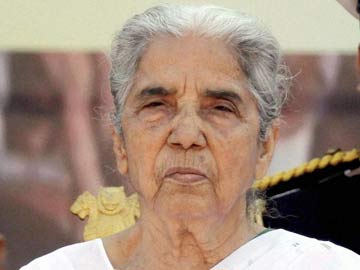 Jaipur, Aug 7: Condemning the sacking of Mizoram Governor Kamla Beniwal, Rajasthan Congress today said her removal is "unconstitutional" and has been done due to "political vendetta".
Jaipur, Aug 7: Condemning the sacking of Mizoram Governor Kamla Beniwal, Rajasthan Congress today said her removal is "unconstitutional" and has been done due to "political vendetta".
In a statement issued here, Rajasthan PCC president Sachin Pilot said Beniwal has a special image in Indian politics as a former Cabinet minister and Deputy Chief Minister with the previous Congress government in the state.
Her (Beniwal) credentials paved the way for her Governorship of Gujarat during the UPA government, Pilot said.
It was she who had filled the post of Lokpal in Gujarat, he said, adding that her political and public life has always been unblemished.
"Due to political vendetta and baseless allegations, she was removed from her post of Mizoram Governor," he said, adding that her term would have been over after a few more months.
"Her removal is unconstitutional. It is also a violation of the Supreme Court's direction and it is illegal too," Pilot said, adding that it will encourage enmity in Indian politics.
Beniwal, who had a running battle with Narendra Modi when he was the Gujarat Chief Minister, was sacked last night as Governor of Mizoram just two months before her tenure comes to an end.





Comments
Add new comment